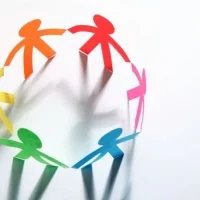Small grants have emerged as a vital resource for local non-governmental organizations (NGOs) striving to create meaningful change within their communities. These grants, often provided by government agencies, international organizations, or philanthropic foundations, are designed to support grassroots initiatives that may lack the funding necessary to implement their projects. For local NGOs, small grants can serve as a lifeline, enabling them to address pressing social issues, mobilize community resources, and foster sustainable development.
The significance of small grants extends beyond mere financial support; they empower local organizations to take ownership of their initiatives and tailor solutions to the unique challenges faced by their communities. By providing targeted funding, these grants encourage innovation and creativity, allowing NGOs to experiment with new approaches and strategies. As a result, small grants not only facilitate immediate project implementation but also contribute to the long-term capacity building of local organizations, enhancing their ability to effect change in the future.
Importance of Addressing Gender Equality Issues
Gender equality is a fundamental human right and a cornerstone of sustainable development. Addressing gender disparities is essential for fostering inclusive societies where everyone has equal access to opportunities and resources. When gender equality is prioritized, it leads to improved health outcomes, economic growth, and social cohesion.
However, despite significant progress in recent years, many communities still grapple with deep-rooted gender inequalities that hinder the potential of half the population. Local NGOs play a crucial role in addressing these issues by implementing programs that challenge societal norms and empower marginalized groups. By focusing on gender equality, these organizations can help dismantle barriers that prevent women and girls from fully participating in economic, political, and social life.
Moreover, promoting gender equality benefits everyone; when women thrive, families prosper, and communities become more resilient. Therefore, investing in initiatives that address gender equality is not just a moral imperative but also a strategic approach to achieving broader development goals.
Criteria for Eligibility for Small Grants
To ensure that small grants effectively reach those who need them most, various eligibility criteria are typically established by grant-making organizations. These criteria may vary depending on the specific grant program but generally include factors such as organizational capacity, project relevance, and community impact. Local NGOs seeking funding must demonstrate their ability to manage funds responsibly and implement projects effectively.
In addition to organizational capacity, many grant programs prioritize projects that align with specific themes or objectives, such as gender equality. NGOs must articulate how their proposed initiatives address these themes and contribute to the overall goals of the funding organization. Furthermore, some grants may require evidence of community involvement or partnerships with other organizations to enhance the project’s reach and sustainability.
By understanding and meeting these eligibility criteria, local NGOs can position themselves as strong candidates for funding opportunities.
Types of Gender Equality Issues that Small Grants can Address
Small grants can tackle a wide array of gender equality issues, each requiring tailored approaches to create lasting change. One significant area is education; many girls around the world still face barriers to accessing quality education due to cultural norms or economic constraints. Small grants can fund initiatives that provide scholarships, mentorship programs, or community awareness campaigns aimed at promoting girls’ education.
Another critical issue is women’s economic empowerment. Small grants can support programs that provide vocational training, access to microfinance, or entrepreneurship support for women. By equipping women with the skills and resources they need to succeed economically, these initiatives can help break the cycle of poverty and promote gender equality in the workforce.
Additionally, small grants can address issues related to health and reproductive rights, ensuring that women have access to essential healthcare services and information.
Successful Examples of Small Grants Impacting Gender Equality
Numerous success stories illustrate the transformative impact of small grants on gender equality initiatives worldwide. For instance, a local NGO in a rural area received a small grant to implement a program focused on educating young girls about their rights and providing them with leadership training. As a result of this initiative, many girls gained confidence and began advocating for themselves within their communities.
The program not only improved educational outcomes but also fostered a new generation of female leaders who are now actively involved in local decision-making processes. Another compelling example comes from an urban NGO that utilized small grant funding to launch a microfinance program specifically for women entrepreneurs. This initiative provided women with access to low-interest loans and business training workshops.
The outcome was remarkable: many participants successfully launched their businesses, leading to increased household incomes and improved economic stability for their families. This success story highlights how small grants can catalyze significant change by empowering women economically and socially.
How to Apply for Small Grants
Applying for small grants can seem daunting, but with a clear strategy and organized approach, local NGOs can increase their chances of success. The first step is to thoroughly research available grant opportunities that align with the organization’s mission and project goals. Many funding organizations provide detailed guidelines on their websites regarding eligibility criteria, application processes, and deadlines.
Once suitable grants are identified, NGOs should prepare a compelling proposal that clearly outlines the project’s objectives, target population, implementation plan, and expected outcomes. It is essential to demonstrate how the project addresses gender equality issues and aligns with the funder’s priorities. Additionally, including a detailed budget that outlines how funds will be allocated can strengthen the proposal.
Finally, NGOs should ensure that all required documentation is submitted on time and follow up with the funding organization if necessary.
Challenges and Opportunities for Local NGOs in Addressing Gender Equality
While local NGOs play a pivotal role in advancing gender equality, they often face significant challenges in their efforts. Limited financial resources can hinder their ability to implement comprehensive programs or reach underserved populations effectively. Additionally, navigating bureaucratic processes associated with grant applications can be time-consuming and complex, diverting attention from core mission activities.
However, these challenges also present opportunities for growth and collaboration. By forming partnerships with other organizations or stakeholders, local NGOs can pool resources and expertise to enhance their impact. Furthermore, engaging community members in project design and implementation fosters ownership and sustainability.
As awareness of gender equality issues continues to grow globally, there is an increasing willingness among funders to support innovative solutions proposed by local NGOs.
Conclusion and Call to Action
In conclusion, small grants represent a powerful tool for local NGOs committed to addressing gender equality issues within their communities. By providing essential funding and support, these grants enable organizations to implement impactful initiatives that empower women and girls while fostering inclusive societies. The importance of addressing gender disparities cannot be overstated; it is crucial for achieving sustainable development and improving overall community well-being.
As we move forward, it is imperative for local NGOs to actively seek out small grant opportunities and leverage them to drive change. Funders must also recognize the vital role these organizations play in advancing gender equality and continue to invest in their efforts. Together, we can create a world where everyone has equal opportunities to thrive—let us take action today!









































